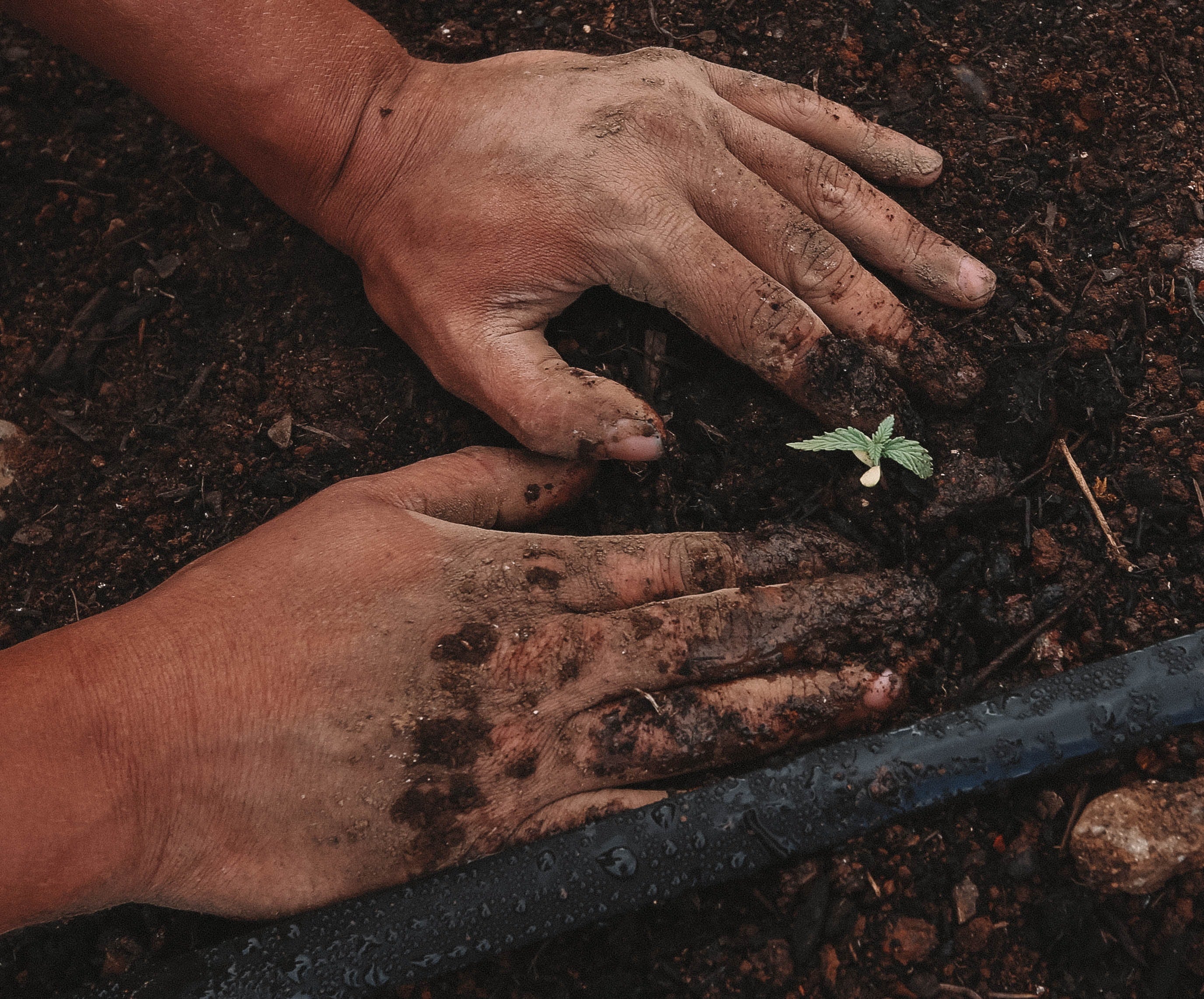If you're looking to add a more sustainable food source to your survival garden, perennial vegetables could help. Instead of growing them again and again, they are typically planted just once and can continue to thrive long after your annuals have dried up and need replanting.
Here's what to know about perennials, how to plan, and which ones to choose for your garden.
Benefits of Planting Perennial Vegetables for Your Survival Garden
Perennial vegetables are a win for your survival garden and require periodic watering once you get everything up and running. You enjoy harvests year after year without constantly replanting and they generally take less maintenance. Over time, you reap the benefits of large yields that are practically growing on autopilot in your survival garden.
Soil health is also a major benefit of perennial gardening. Because perennials have long root systems, they support soil health by creating more root structure and preventing erosion. You'll also find perennials help create more valuable carbon in your soil, providing a source of nutrients while increasing microbial activity.
How Often Do You Need to Replant Perennials?
Depending on your climate, soil conditions, and the plants you choose, perennials could live for ten to twenty years. However, many survival gardeners decide to relocate their perennials as they get larger or to make room for new plants and food sources. Fall or Spring are usually optimal seasons to move out your perennials to other areas of your property, pass off to family and friends, or further cultivate an additional survival source, like a food forest.



Which Perennials Should You Grow in Your Survival Garden?
There are hundreds of perennials to choose from, ranging from flowers to herbs, fruits, nuts, and vegetables. Here are a few to get started with as your next survival food source.
Basil
Basil helps freshen up salads, entrees, and even ice cream. But its nutritional compounds could also help alleviate anxiety and depression and lower the risk for age-related memory loss. There's also evidence basil can help fight inflammation in the body, which often leads to or aggravates chronic illnesses.
Avocado
Avocados are packed with Vitamins C, E, K, and B6. This superfood also provides the riboflavin, folate, niacin, magnesium, and potassium needed for a healthy diet and to stay satiated. They’re perfect as their own dish, in a salad, on toast, or in a tasty dip.
Chives
Chives contain choline and folate that are often linked to improving memory and cognitive function. As a nutrient-dense herb with plenty of Vitamin C and antioxidants, chives could help your heart, boost your immunity, and improve sleep and overall mood. Chop up a handful of chives and add them to your dishes to add flavor and nutrition.
Yarrow
Yarrow has long been used to treat wounds for its anti-inflammatory and antioxidant properties. The fibroblasts in its leaves are also responsible for helping connective tissues heal. It also contains Vitamins A and C, potassium, magnesium, zinc, niacin, and more that could help out with digestion. Yarrow can be consumed in salads, soups, dishes, or in a hot cup of tea.
Artichoke
Artichokes are low in fat and high in flavor and nutritional value. They also provide invaluable folate and Vitamins C and K. Adding a medium artichoke to your dinner provides up to 28% of the recommended daily intake and is among the most antioxidant-rich vegetables.
Rhubarb
Rhubarb's edible stalks are rich in antioxidants and include antibacterial, anti-inflammatory, and anti-cancer properties. They could help prevent issues, including cancer and diabetes. When you add rhubarb to your salads and delicious desserts, you pack in more Calcium, Vitamin A, Magnesium, Folate, Vitamin K, Vitamin C, and more.
Asparagus
Asparagus pairs well with salads or stands alone as its own dish with the help of some olive oil and fresh lemon. Asparagus is tasty and nutritious, with tons of fiber, folate, Vitamin C, Vitamin A, Vitamin K, potassium, phosphorus, and protein.
Figs
You can plant fruit and nut trees to add to your collection of perennials, including figs. Figs are not technically a fruit but inflorescence. They're a cluster of many flowers and seeds wrapped up in a bulbous stem. Once you get them growing, you'll enjoy the nutritional benefits, including antioxidants, which may support healthy bone pressure and bones and aid in digestive health and weight management.
Hazelnuts
Hazelnuts are relatively easy to grow and don't require as much space as other trees. With patience, you end up with sweet, delicious nuts during the summer months and enhance your nutrition. Hazelnuts are filled with protein, thiamin, Vitamin E, magnesium, copper, manganese, fiber, potassium, zinc, B6 and more.

What Kind of Maintenance Do Perennials Need?
Fortunately, perennials are generally low maintenance and need quality soil and water to get them going. You'll probably find that most perennials grow best when the ground is well-drained and has a pH of 6.0 to 7.0. As with any plant, it's a good idea to add organic matter to improve their overall fertility and keep the soil temperature cool.
If you're growing flowering perennials, you should stay on top of dying buds and leaves and clear away any weeds. Too many perennials can also be a problem. You may need to divide your plants and relocate them or give them away to someone in need. Keep an eye on their growth and trim them back as needed to ensure the rest of your garden can still thrive.
Which Plants Compliment Perennials in Your Garden?
One of the downsides to perennials is they take longer to grow and don't have a specific growing season, making it harder to plan for a harvest and bolster your food stores. In the long run, you're creating a robust survival food source. But in the short term, you need to consider growing annuals and other plants.
Focus on some fast-growing vegetables that will help flesh out your survival garden right away. Carrots, cucumber, pole beans, radishes, beets, and arugula are a few places to start. These vegetables grow quickly but also tend to be robust and durable in multiple climates.
You can pick up one of our survival seed kits with perennial and annual fruits, vegetables, herbs, and edible flowers. Or check your hardiness zone to determine which plants will work best in your garden and climate.
Next Steps
Adding perennials to your survival garden can help your food supply flourish and bring more peace of mind to you and your family. Make sure to include a mix of your favorite foods, robust staples, and fruit or nut-bearing trees that could last for generations.
Ready to get started building your own seed vault for your homestead? We provide a one-stop shopping experience for your survival gardening needs. Browse our survival seeds, kits, and supplies, or purchase our pre-packaged options.












1 comment
I am searching for Jerusalem Artichoke which I have been told that once planted can live and produce underground for years and years. PLEASE HELP!! I can’t find it!